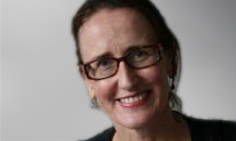WHAT’S a doctor to do when a patient wants something that is not clinically indicated?
Getting out the liquid nitrogen to remove an unsightly skin blemish during a routine GP visit might seem harmless enough, but what about prescribing beta-blockers to help manage exam nerves or agreeing to a request for a total body scan?
A group of Dutch ethicists has done some fascinating qualitative research into the opinions doctors and patients hold about what they call “wish-fulfilling medicine” — that is, a medical service provided to satisfy a patient’s non-medical desire.
“Wish-fulfilling medicine focuses on the grey area of medical practice where the boundaries of medicine are changing due to patients’ wishes and advances in medical technology”, the authors write.
They say demand for such services is on the rise, suggesting this might be linked to the move towards patient-centred care.
Among examples of wish-fulfilling medicine raised by the GPs and plastic surgeons included in the physician study were breast enhancement, total body scans, taking beta-blockers to reduce nerves during a driving test and using corticosteroid cream for skin bleaching.
In the second study, these four examples were discussed by focus groups of patients, along with a fifth issue, oocyte vitrification for social reasons.
In some ways, the doctors and patients took quite similar approaches, with both groups emphasising issues of patient autonomy, risks and safety, and financial equity. Both doctors and patients raised concerns about who was paying for these interventions and for any follow-up treatment that resulted.
Doctors explored the tension between their desire to respect the patient’s wishes, while also in some cases feeling an obligation to deny those wishes, as the authors write, “for a variety of reasons, sometimes implicitly paternalistic”.
“Yeah, sometimes the physician needs to be above it all, I think”, one GP said. “Together and in discussion, yes, but not going along indiscriminately with the patient’s desires, because I think, maybe the patient is not aware that his outlook can change … or able to see the consequences or the risks.”
Whether you consider that paternalistic or not, the patients also seemed to expect doctors to play this role.
“On the one hand, physicians were seen as a means to the wish-fulfilling ends”, the authors write. “On the other hand, when the participants of the focus groups were concerned about risks in wish-fulfilling medicine, they expected physicians to protect them and refuse certain treatments for their own good.”
The two groups may have agreed on the need for doctors to protect patients from risk, but they diverged dramatically when it came to assessing what those risks were.
“We quickly discovered that lay people often lack the (medical) knowledge to make well-considered judgements”, the authors observe.
While doctors expressed concern about the risk of false-positive results with the total body scan, patients remained convinced this would be good for them even after the disadvantages were explained. “[A] preventative scan can never harm”, said one.
In fact, the patients’ main concern about total body scans was a perceived lack of fairness in not having them available to everybody.
At the other end of the scale, patients rated the risks of plastic surgery as lower than one-off use of a beta-blocker.
“Even though information was provided, there was a persistent belief that beta-blockers are very dangerous”, the authors write.
Of course, you can’t generalise from two small studies but the belief that screening is good by definition, while medication is always threatening, does seem to be widespread.
The recent controversial ABC Catalyst program on statins spoke to such fears.
One of the challenges for doctors is to help patients understand that the question of risk is a lot more complicated than “scans good, pills bad”.
Jane McCredie is a Sydney-based science and medicine writer.

 more_vert
more_vert
In how many of those who had wishful scans was something of sgnificance found e.g. in patients who want to be sure nothing is causing their symptoms?
The most important aspect of this is that in the mind of the (ignorant) public, the effectiveness of medical procedures is overestimated and the harm underestimated. The status of the profession (perhaps carefully crafted and even more carefully guarded) has a lot to answer for. This perceived notion of the medical profesisonal makes the patients even more gullible and blind to the perhaps too carefully worded warnings about the proposed procedure.
“we argue that “informed” consent is a process that is usually incomplete, despite trappings and assumptions that help to create the illusion of completeness.” Journal of Bioethical Inquiry
The stability of a personal doctor-patient relationship founded on mutual trust and respect are critical – otherwise we have a consumer expecting the doctor to be a ‘prescription vending-machine’ and a doctor who risks becoming paternalistic and being perceived as arrogant. It takes a lot of goodwill over a long period of time for doctor-patient stability to emerge, something that I think goes beyond the scope of these two studies.